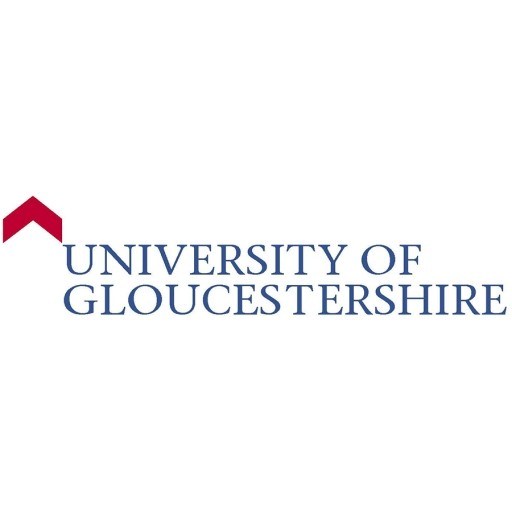Photos of university / #unikentlive
The Bachelor of Arts in Art and Film at the University of Kent offers students a comprehensive exploration of contemporary and historical practices in visual arts and cinema. This interdisciplinary programme is designed for those passionate about creative expression, critical analysis, and cultural understanding through the mediums of art and film. Students will engage with a diverse range of topics, including film theory and history, visual culture, digital media, photography, sculpture, painting, and experimental art forms. The curriculum combines practical skills development with academic inquiry, enabling students to produce their own creative projects while critically analyzing the works of others.
Throughout the course, students will benefit from access to state-of-the-art facilities, including dedicated art studios, film editing suites, and exhibition spaces, fostering a vibrant environment for experimentation and innovation. They will have opportunities to participate in exhibitions, film screenings, and industry events, providing valuable experience and networking possibilities within the arts sector. The programme emphasizes critical thinking, originality, and independent research, preparing graduates for careers in various creative industries such as film production, gallery curation, arts administration, digital media, and further postgraduate study.
Our experienced faculty includes practicing artists and film professionals who offer personalized mentorship and up-to-date industry insights. The programme encourages a global perspective, incorporating diverse cultural viewpoints and encouraging students to develop their unique artistic voice. With a flexible structure, students can tailor their studies according to their interests, selecting modules that focus on specific art forms or cinematic genres. The interdisciplinary approach fosters a well-rounded understanding of how visual arts and film influence society and culture.
By combining theory and practice, the Bachelor of Arts in Art and Film at the University of Kent equips students with the critical skills, technical abilities, and creative confidence necessary to succeed in dynamic arts environments. Graduates leave the programme well-prepared to pursue a range of professional pathways in the arts and media industries or to continue their academic journey with postgraduate research. Emphasizing innovation, critical engagement, and cultural awareness, this programme offers a stimulating and supportive environment for emerging artists and filmmakers to develop their talents and make meaningful contributions to the creative world.
Detailed Course Facts
Application deadline January 15 Tuition fee- GBP 9000 Year (EEA)
- GBP 12450 Year (Non-EEA)
UK/EU/International students on an approved Year Abroad or Year in Industry for the full 2014/15 academic year pay an annual fee of £1,350 to Kent. Students studying abroad for less than one academic year will pay full fees according to their fee status
Start date September 2015 28 September 2015 Credits (ECTS) 180 ECTSTotal Kent credits: 360
Credits 360Total Kent credits: 360
Duration full-time 36 months Languages Take an IELTS test- English
Course Content
The course structure below gives a flavour of the modules that will be available to you and provides details of the content of this programme. This listing is based on the current curriculum and may change year to year in response to new curriculum developments and innovation. Most programmes will require you to study a combination of compulsory and optional modules, you may also have the option to take wild modules from other programmes offered by the University in order that you may customise your programme and explore other subject areas of interest to you or that may further enhance your employability.
Stage 1
Possible modules may include:
FI313 - Film Form
FI315 - Introduction to Film Theory
HA317 - Thinking about Photography and its Histories
You have the opportunity to select wild modules in this stage
Stage 2
Possible modules may include:
HA661 - Art & Film
FI537 - Postwar European Cinema: Waves and Realisms
FI565 - British Cinema
FI599 - The Gothic in Film
FI602 - Documentary Film
FI604 - Digital Domains
FI607 - Storytelling and the Cinema
FI573 - Animated Worlds
FI582 - New York and the Movies
FI583 - National and Transnational Cinema
FI594 - Film Authorship
FI595 - Film Genre (Horror)
ART500 - Independent Project
FI531 - Topics in American Cinema II
FI559 - Sound and Cinema
FI568 - Film and Television Adaptation
CL609 - Roman Art and Architecture
CL608 - Greek Art and Architecture
HA504 - Classicism and Baroque
HA507 - Reading the Image
HA594 - Photography and Intuition
HA655 - Surrealism and Photography
HA650 - Russian Painting from the Academy to the Avant-Garde
HA669 - Study of a Single Artist
HA666 - Drawing on History
HA668 - Transatlantic Dialogues: British and American Art c. 1900-1970
HA595 - Visual Arts Writing
HA554 - Contemporary Art:From Warhol to Whiteread: Postmodernity & Visual Art Pr
CL623 - Minoan Art and Architecture
HA580 - Camera, Light and Darkroom: Intro to Black & White Photography
You have the opportunity to select wild modules in this stage
Year in industry
The School of Arts Placement Year gives you an opportunity to gain relevant workplace experience as part of your programme of study. It provides you with an opportunity to increase your contacts and network so that you can hit the ground running when you graduate.
The placement year is in addition to your standard undergraduate programme and normally falls between your second and final year. The year itself is assessed on a pass/fail basis through employer feedback and a written report that you submit.
Stage 3
Possible modules may include:
HA580 - Camera, Light and Darkroom: Intro to Black & White Photography
HA579 - Visual Arts Internship
HA554 - Contemporary Art:From Warhol to Whiteread: Postmodernity & Visual Art Pr
HA556 - Art and Film
HA595 - Visual Arts Writing
HA599 - Surrealism and Photography
HA648 - Drawing on History
HA668 - Transatlantic Dialogues: British and American Art c. 1900-1970
HA670 - Study of a Single Artist
HA650 - Russian Painting from the Academy to the Avant-Garde
FI537 - Postwar European Cinema: Waves and Realisms
HA594 - Photography and Intuition
CL653 - Minoan Art and Architecture
FI565 - British Cinema
HA507 - Reading the Image
HA504 - Classicism and Baroque
FI608 - Film Authorship
FI603 - Sound and Cinema
FI595 - Film Genre (Horror)
FI583 - National and Transnational Cinema
FI584 - The Gothic in Film
FI582 - New York and the Movies
FI573 - Animated Worlds
CL608 - Greek Art and Architecture
ART500 - Independent Project
FI501 - The Documentary Film
FI527 - Storytelling and the Cinema
CL609 - Roman Art and Architecture
FI531 - Topics in American Cinema II
FI568 - Film and Television Adaptation
FI569 - Digital Domains
You have the opportunity to select wild modules in this stage
English Language Requirements
IELTS band : 6.5
To study at this university, you have to speak English. We advice you to
take an IELTS test.Requirements
The University will consider applications from students offering a wide range of qualifications, typical requirements are listed below, students offering alternative qualifications should contact the Admissions Office for further advice. It is not possible to offer places to all students who meet this typical offer/minimum requirement.
Qualification Typical offer/minimum requirement A level- BBB
- The University of Kent will not necessarily make conditional offers to all access candidates but will continue to assess them on an individual basis. If an offer is made candidates will be required to obtain/pass the overall Access to Higher Education Diploma and may also be required to obtain a proportion of the total level 3 credits and/or credits in particular subjects at merit grade or above.
- The university will consider applicants holding BTEC National Diploma and Extended National Diploma Qualifications (QCF; NQF;OCR) on a case by case basis please contact us via the enquiries tab for further advice on your individual circumstances.
- 34 points overall or 15 points at Higher
The University receives applications from over 140 different nationalities and consequently will consider applications from prospective students offering a wide range of international qualifications. Our International Development Office will be happy to advise prospective students on entry requirements.
Work Experience
No work experience is required.
Related Scholarships*
- Academic Excellence Scholarship
"The Academic Excellence Scholarship can provide up to a 50 % reduction in tuition per semester. These scholarships will be renewed if the student maintains superior academic performance during each semester of their 3-year Bachelor programme. The scholarship will be directly applied to the student’s tuition fees."
- Access Bursary
Bursary for UK students all subjects where the variable tuition fee rate is payable.
- Alumni Bursary
Alumni Bursary for UK Undergraduate students
* The scholarships shown on this page are suggestions first and foremost. They could be offered by other organisations than University of Kent.
Funding
Kent offers generous financial support schemes to assist eligible undergraduate students during their studies. Our 2015 financial support package includes a £6,000 cash bursary spread over the duration of your course. For Ts&Cs and to find out more, visit our funding page.
General scholarships
Scholarships are available for excellence in academic performance, sport and music and are awarded on merit. For further information on the range of awards available and to make an application see our scholarships website.
The Kent Scholarship for Academic Excellence
At Kent we recognise, encourage and reward excellence. We have created the Kent Scholarship for Academic Excellence, which will be awarded to any applicant who achieves a minimum of AAA over three A levels, or the equivalent qualifications as specified on our funding pages. Please note that details of the scholarship for 2015 entry have not yet been finalised and are subject to change.
The Art and Film programme at the University of Kent offers students a comprehensive education that explores the rich history, theory, and practice of visual arts and cinema. The programme is designed to develop students' critical thinking, creative skills, and understanding of the cultural contexts of art and film. Throughout the course, students engage with a diverse range of topics, including contemporary art practices, film analysis, and the socio-political dimensions of visual media. The curriculum combines theoretical lectures, practical workshops, and opportunities for independent research, enabling students to develop a well-rounded perspective on the visual arts and film industries.
Students have access to state-of-the-art facilities such as dedicated art studios, film editing suites, and media labs, fostering an environment conducive to creative experimentation and innovation. The programme also emphasizes interdisciplinary approaches, encouraging students to draw connections between different art forms, media, and cultural issues. Field trips, exhibitions, and industry events form a crucial part of the learning experience, providing real-world insights and networking opportunities.
The University of Kent's location within proximity to cultural hubs like London offers students additional opportunities for internships, collaborations, and exposure to professional practice in art galleries, film festivals, and media organizations. The academic staff comprises experienced practitioners and scholars who guide students through their academic journey, offering mentorship and expertise in their chosen specializations.
Graduates of the Art and Film programme are well-equipped to pursue careers in various fields, including fine arts, film production, arts management, curation, and media studies. Many alumni continue their studies at postgraduate levels or enter industry roles where they contribute as artists, filmmakers, critics, or educators. Overall, the programme aims to foster a vibrant creative community that nurtures individuality, technical proficiency, and a deeper understanding of visual culture.
(Exactly 2,046 characters)








